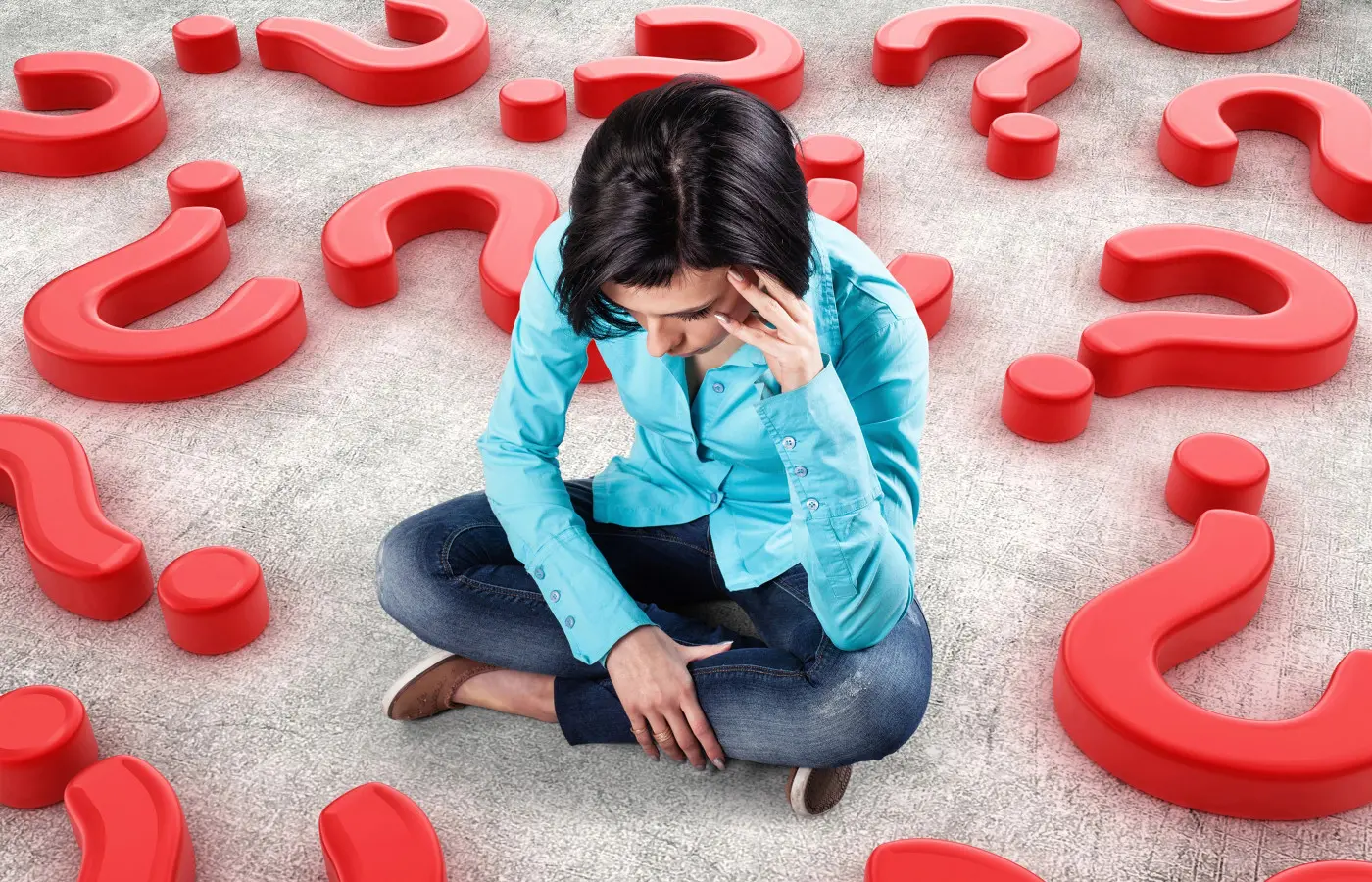Managing Anxiety Without Medication: Strategies for a Balanced Life

In today's fast-paced world, anxiety has become a common experience for many individuals. Whether it's triggered by work pressures, personal challenges, or global events, anxiety can significantly impact our daily lives and overall well-being. While medication is a valuable tool for managing anxiety, it's not the only option. Many people seek alternative or complementary methods to alleviate anxiety symptoms without relying on medication. This blog post explores various strategies to manage anxiety naturally, promoting a balanced and fulfilling life.
Understanding Anxiety
Before diving into specific strategies, it's essential to understand what anxiety is and how it manifests. Anxiety is a natural response to stress, characterized by feelings of worry, nervousness, or fear. While occasional anxiety is normal, chronic anxiety can interfere with daily activities and lead to various physical and mental health issues.
Common Symptoms of Anxiety
Excessive worrying
Restlessness or feeling on edge
Fatigue
Difficulty concentrating
Irritability
Muscle tension
Sleep disturbances
Understanding these symptoms can help identify anxiety early and implement effective management strategies.
Strategies to Manage Anxiety Without Medication
1. Practice Mindfulness and Meditation
Mindfulness and meditation are powerful tools for managing anxiety. These practices encourage present-moment awareness, helping individuals to detach from their worries and reduce the overall intensity of their anxiety.
Mindfulness Techniques
Mindful Breathing: Focus on your breath, observing each inhale and exhale without trying to change it. This practice can help ground you in the present moment.
Body Scan: Slowly shift your attention through different parts of your body, noticing any sensations without judgment. This can help you become more aware of physical tension and release it.
Mindful Walking: Pay attention to the sensation of your feet touching the ground and the rhythm of your steps. This can be a calming way to integrate mindfulness into daily activities.
Benefits of Meditation
Regular meditation practice can lead to a range of benefits, including reduced anxiety, improved concentration, and increased emotional resilience. Guided meditations, available through apps or online platforms, can be particularly helpful for beginners.
2. Exercise Regularly
Physical activity is one of the most effective ways to reduce anxiety. Exercise releases endorphins, which are natural mood lifters. It also helps to reduce the levels of stress hormones like cortisol in the body.
Types of Exercise
Aerobic Exercise: Activities like walking, running, swimming, or cycling can help lower anxiety levels.
Strength Training: Building muscle strength through weightlifting or bodyweight exercises can also reduce symptoms of anxiety.
Yoga: Combining physical postures with breath control and meditation, yoga can be particularly effective in managing anxiety.
3. Maintain a Healthy Diet
Nutrition plays a crucial role in mental health. A balanced diet can help stabilize mood and reduce anxiety. Here are some dietary tips to consider:
Eat Regular Meals: Skipping meals can lead to low blood sugar, which can increase feelings of anxiety.
Limit Caffeine and Sugar: These substances can exacerbate anxiety symptoms. Opt for herbal teas or water instead.
Include Omega-3 Fatty Acids: Found in fish, flaxseeds, and walnuts, omega-3 fatty acids have been shown to reduce anxiety.
Consume Whole Foods: Focus on fruits, vegetables, whole grains, and lean proteins to provide your body with the nutrients it needs.
4. Get Enough Sleep
Sleep and anxiety are closely connected. Anxiety can disrupt sleep, and lack of sleep can worsen anxiety. Establishing healthy sleep habits is crucial for managing anxiety.
Tips for Better Sleep
Create a Routine: Go to bed and wake up at the same time every day, even on weekends.
Limit Screen Time: Avoid screens for at least an hour before bedtime, as the blue light can interfere with melatonin production.
Create a Relaxing Environment: Keep your bedroom cool, dark, and quiet. Consider using a white noise machine if you live in a noisy area.
Avoid Stimulants: Limit caffeine and nicotine in the afternoon and evening.
5. Build a Support System
Social support is a vital component of mental health. Connecting with others can provide a sense of belonging and reduce feelings of isolation, which can exacerbate anxiety.
Ways to Build Support
Talk to Friends and Family: Share your feelings and experiences with trusted individuals who can offer support and understanding.
Join a Support Group: Connecting with others who are experiencing similar challenges can be incredibly validating and helpful.
Seek Professional Help: Therapists and counselors can provide valuable tools and strategies for managing anxiety.
6. Practice Relaxation Techniques
Various relaxation techniques can help reduce anxiety by calming the mind and body. These techniques can be easily incorporated into daily life.
Examples of Relaxation Techniques
Deep Breathing: Practice slow, deep breaths to activate the body's relaxation response.
Progressive Muscle Relaxation: Tense and then slowly release different muscle groups to reduce physical tension.
Visualization: Imagine a peaceful scene or situation to distract from anxious thoughts and promote relaxation.
7. Limit Alcohol and Substance Use
While it might be tempting to use alcohol or other substances to cope with anxiety, these can actually worsen anxiety symptoms in the long run. Limiting or avoiding these substances can improve overall mental health.
8. Develop Healthy Coping Mechanisms
Identifying and developing healthy coping mechanisms is crucial for managing anxiety. These mechanisms can help you navigate stressful situations without resorting to unhealthy behaviors.
Healthy Coping Strategies
Journaling: Writing about your thoughts and feelings can provide an outlet for anxiety and help you gain perspective.
Hobbies: Engaging in activities you enjoy can provide a distraction and reduce stress.
Set Boundaries: Learn to say no and prioritize your well-being by setting healthy boundaries in your personal and professional life.
9. Stay Informed
Educating yourself about anxiety can demystify the experience and provide you with practical tools for management. There are many reputable resources available online and in print that can offer valuable insights and strategies.
10. Practice Gratitude
Focusing on the positive aspects of your life can shift your mindset and reduce anxiety. Practicing gratitude can help reframe negative thoughts and promote a more optimistic outlook.
Ways to Practice Gratitude
Gratitude Journal: Write down three things you're grateful for each day.
Express Appreciation: Take time to thank the people in your life who support you.
Reflect: Spend a few moments each day reflecting on the positive aspects of your day.
11. Engage in Creative Activities
Creativity can be a powerful outlet for anxiety. Engaging in creative activities can provide a sense of accomplishment and distraction from anxious thoughts.
Creative Outlets
Art: Drawing, painting, or crafting can be therapeutic and relaxing.
Music: Listening to, playing, or composing music can help soothe anxiety.
Writing: Poetry, fiction, or blogging can be a way to express and process emotions.
12. Challenge Negative Thoughts
Cognitive-behavioral techniques can help you identify and challenge negative thought patterns that contribute to anxiety. By reframing these thoughts, you can reduce their impact on your mental health.
Steps to Challenge Negative Thoughts
Identify the Thought: Notice when you're having a negative thought.
Examine the Evidence: Consider whether the thought is based on facts or assumptions.
Reframe the Thought: Replace the negative thought with a more balanced, realistic perspective.
13. Stay Organized
Disorganization can contribute to feelings of overwhelm and anxiety. Keeping your environment and schedule organized can help reduce stress and improve your ability to manage anxiety.
Tips for Staying Organized
Use a Planner: Keep track of appointments, deadlines, and tasks.
Declutter: Regularly clean and organize your living and work spaces.
Prioritize Tasks: Focus on completing the most important tasks first.
14. Limit Exposure to Stressors
While it's not always possible to avoid stress, limiting exposure to known stressors can help manage anxiety. This might involve setting boundaries, managing time effectively, and reducing unnecessary commitments.
Strategies for Limiting Stressors
Manage News Consumption: Limit exposure to distressing news stories and choose reputable sources.
Set Boundaries: Protect your time and energy by setting limits with others.
Simplify Your Schedule: Avoid overcommitting by prioritizing essential activities.
15. Engage in Nature
Spending time in nature has been shown to reduce stress and improve mental health. Whether it's a walk in the park, hiking, or gardening, nature can provide a calming escape from daily stressors.
Benefits of Nature
Reduces Stress: Nature can lower levels of cortisol, the stress hormone.
Improves Mood: Exposure to natural environments can increase feelings of well-being.
Enhances Focus: Time spent in nature can improve concentration and cognitive function.
16. Practice Self-Compassion
Being kind to yourself is crucial when managing anxiety. Self-compassion involves treating yourself with the same kindness and understanding that you would offer a friend.
Ways to Practice Self-Compassion
Positive Self-Talk: Replace self-criticism with supportive and encouraging thoughts.
Forgive Yourself: Let go of past mistakes and focus on learning and growth.
Take Breaks: Allow yourself time to rest and recharge without guilt.
17. Use Technology Wisely
Technology can be both a source of stress and a tool for managing anxiety. Using technology mindfully can help you benefit from its positive aspects while minimizing its negative impact.
Tips for Mindful Technology Use
Set Limits: Use apps or built-in settings to limit screen time.
Choose Positive Content: Follow accounts and websites that promote well-being and positivity.
Good luck and just keep going, small things repeated over time, gives great results!
/Claes-Goran Hammar
PhD, Coach and Mentor

